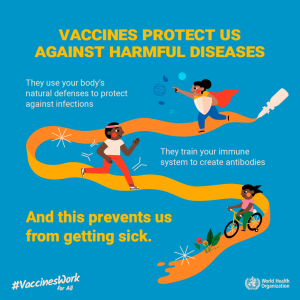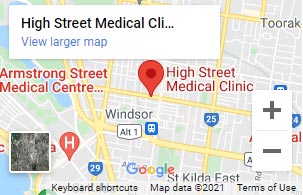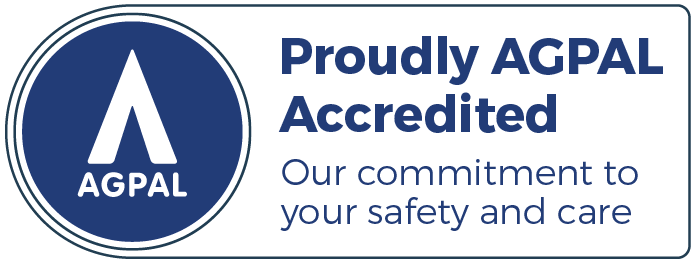June 12-18 marks Men’s Health Week, an important week that raises awareness for an important topic.
Men’s health is one of those prone-to-underreporting topics that can be overshadowed by other health areas.
But did you know?
- In Australia, men live on average 4.1 years less than women
- 70% of men in Australia are overweight or obese
- One in four men are lifetime risky drinkers, compared with one in ten women
- In Australia, men are more likely to be current daily smokers than women (12.0% compared to 8.2%)
- Men are more than twice as likely as women to have experienced substance use disorders (7.0% compared with 3.3%)
HOWEVER, 70% of a man’s overall health is controllable through lifestyle, only 30% is determined by genetics.
Sources: amhf.org.au, Link Health and Community, ABS, AIHW National Drug Strategy Household Survey
Calling all experts!
The team at HSMC offer professional care on all aspects of men’s health.
The doctors share interests in key men’s health areas such as mental health, preventative health, general medicine and more.
With help from the experts, we take a look at men’s health and find out:
- Men’s health in a nutshell
- Common, yet avoidable, risks to men’s health
- Simple ways to improve men’s health (and wallets)
Men’s health in a nutshell
Men’s health includes physical, mental, and emotional factors that contribute to the overall health and quality of life of boys and men.
Common areas include cardiovascular diseases, prostate issues, sexual health, mental health, and certain types of cancers, such as testicular and prostate cancer.
Regular check-ups and preventive screenings are crucial for maintaining men’s health and these include routine examinations, such as blood pressure checks, cholesterol screenings, and prostate-specific antigen (PSA) tests.
Men’s health also means awareness and education around adopting a healthy lifestyle.
Mental health is also a priority, and seeking professional help when needed is essential.
By staying informed, proactive, and making conscious choices, men can promote their wellbeing and reduce the risk of developing health conditions.
Common, yet avoidable, risks to men’s health
Here are nine common risks to men’s health—risks that can, in most cases, be minimised or even avoided altogether.
Cardiovascular diseases
Men are at a higher risk of developing heart diseases, including coronary artery disease, high blood pressure, and heart attacks.
Prostate issues
Prostate enlargement and prostate cancer are significant concerns for men. Regular screenings are essential for early detection and treatment.
Testicular cancer
Testicular cancer primarily affects younger men. Self-examinations and awareness of any changes or abnormalities in the testicles are important for early diagnosis.
Mental health issues
Men can be less likely to seek help for mental health concerns, leading to higher rates of undiagnosed and untreated conditions such as depression, anxiety, and substance abuse.
Unhealthy lifestyle choices
Choices like smoking, excessive alcohol consumption, poor diet, lack of exercise, and being overweight or obese increase the risk of various health conditions, including heart disease, diabetes, certain cancers, and overall decreased wellbeing.
Occupational hazards
Men are more likely to work in industries with higher physical risks, exposure to harmful substances, and stressful environments, which can contribute to work-related injuries, chronic conditions, and mental health challenges.
Limited healthcare reporting
Men tend to visit healthcare professionals less frequently than women, leading to delayed diagnosis and treatment of potential health issues.
Violence and accidents
Men have higher rates of involvement in accidents, violence-related injuries, and fatalities, including those related to road accidents, occupational accidents, and violence.
Substance abuse
Men have higher rates of substance abuse, including alcohol and drug misuse, which can lead to long-term health problems and increased risk of accidents or injuries.
There’s no need to increase the risk to your health and wellbeing. If you haven’t had a checkup in a while, or simply feel something’s not right, get in touch with us.
A huge part of men’s health is raising awareness that there’s no need to sweep ailments under the rug and suffer it alone.
Simple ways to improve men’s health (and wallets)
As mentioned above, 70% of a man’s overall health is controllable through lifestyle so making changes for a healthier lifestyle can really be beneficial.
Interestingly, financial pressure plays a huge role in mental health (for men and women). The good news? A healthy lifestyle is often much cheaper than an unhealthy one.
1. Don’t smoke
It may seem obvious, but it makes so much sense (and cents) not to smoke. Damage to your health includes:
- Cancer
- Heart disease, stroke and lung diseases
- Diabetes
- Chronic obstructive pulmonary disease (COPD), including emphysema and chronic bronchitis
- Certain eye diseases
- Problems of the immune system
- Rheumatoid arthritis
Dollars
In Australia, the average packet of 20 cigarettes costs around $35, meaning 1 cigarette costs $1.75.
According to the Australian Bureau of Statistics, current daily smokers, on average, smoke 10.7 cigarettes per day.
💰 This means $18.73 on cigarettes per day, or $6,834.63 per year.
Furthermore, Australian market monitor Compare Club, found that on average, smokers pay 62.7% more in life insurance premiums.
Keep that extra money in your pocket, don’t smoke.
2. Drink responsibly
As per the the government’s recommendation, healthy men and women should drink no more than 10 standard drinks a week and no more than 4 standard drinks on any one day.
Excessive alcohol consumption is a leading cause of damage to men’s health, so if you find yourself drinking more than the recommended amount, take steps to cut down.
As far as costs go, according to the Australian Institute of Health and Welfare, Australian households spend $32 on alcoholic beverages per week. This amount can quickly add up.
3. Eat healthy (and at home)
A bad diet is another huge concern for men’s health. Like tobacco and alcohol use, poor diet choices can lead to a range of health problems.
Junk food, especially fried fast food, is often high in salt, trans fats and additives.
Healthy meals at home can boost your immune system and reduce the risk of illnesses such as heart disease, cancer, high blood pressure, and diabetes.
With one main meal in a mid-range restaurant costing around $25 – $35, excluding any drinks, it’s almost always much cheaper to simply cook at home.
Other simple ways to improve men’s health
Add exercise to your weekly routine
Engage in regular physical activity, aiming for at least 150 minutes of moderate-intensity aerobic exercise per week, along with strength training exercises.
A Saturday morning walk or bike ride with friends, or joining a team sport are great ways to add exercise to your routine.
Mental health support
Seek support when needed. Talk to a mental health professional if you’re experiencing symptoms of depression, anxiety, or stress.
Practice stress-management techniques such as mindfulness, meditation, and engaging in healthy hobbies or activities that you like.
Manage stress
Develop effective stress management techniques such as exercise, relaxation techniques, time management, and engaging in activities that promote relaxation and enjoyment.
Stress is a serious risk factor for men’s health, so developing a lifestyle that reduces stress is always important.
Be proactive about health
Take charge of your health by educating yourself about common men’s health concerns, staying informed about potential risks, and actively engaging in preventive measures and healthy behaviours.
Regular check-ups
Schedule routine check-ups with healthcare professionals to monitor your overall health, address any concerns, and receive appropriate screenings and preventive care.
Following recommended screenings and preventive measures can save lives and steer men on a path of good health and wellbeing.
This includes screenings for conditions such as cardiovascular diseases, prostate cancer, bowel cancer, and other age-specific screenings.

Men’s health at the end of the day
The important takeaway is that with a little education and a few changes, men have the means to a life of good health and wellbeing.
As we’ve found, it also makes financial sense to switch to more healthy habits.
However, it can be hard to know where your health stands and what changes may be necessary per your specific circumstances.
Make June the month you find out how your health stacks up by making an appointment at HSMC today.












